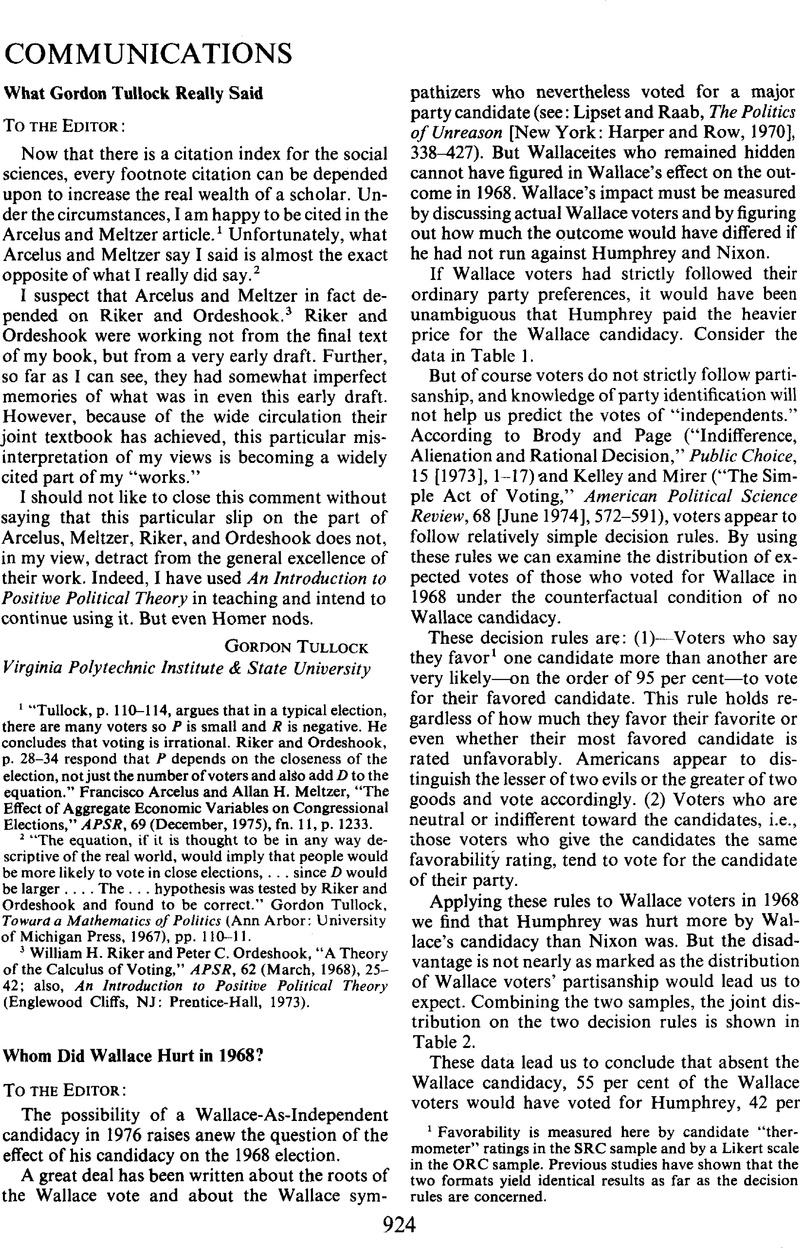Published online by Cambridge University Press: 01 August 2014

1 Favorability is measured here by candidate “thermometer” ratings in the SRC sample and by a Likert scale in the ORC sample. Previous studies have shown that the two formats yield identical results as far as the decision rules are concerned.
2 If we were willing to assume that the observed distribution of “second preferences” held throughout the region, in the South, Humphrey would have had popular majorities in all five of the states that Wallace carried in 1968 (including Georgia and Arkansas where Humphrey ran third). In the six southern states that Nixon carried, however, a combination of Wallace weakness and Nixon strength means that Humphrey would not have gained a majority of the popular vote in any of these six states. In the 26 states outside of the South that Nixon carried, Humphrey's slight lead as “second preference” to Wallace, would not have helped him at all. Even in Ohio, Missouri and New Jersey, (where distribution of the Wallace vote in accord with the division for the entire non-southern region gives Humphrey his greatest boost, he falls short of the requisite majority. Thus under the assumption of uniform distribution, Humphrey gains all of Wallace's 45 electoral votes but still comes up short in the final tally.
Comments
No Comments have been published for this article.